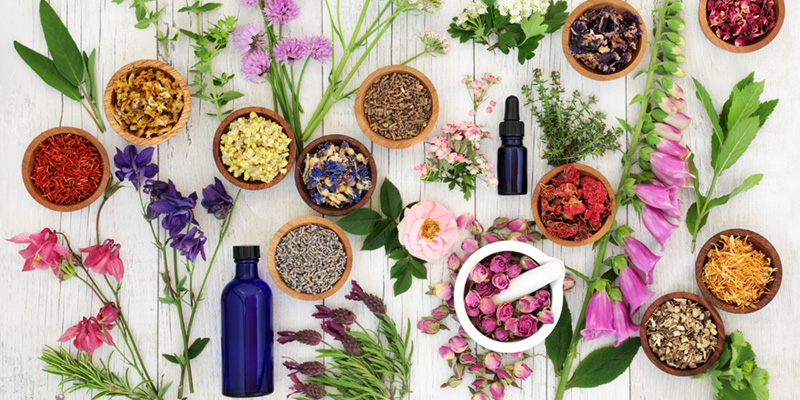Disclaimer: Please speak to a healthcare professional before taking any herbal supplements. Some herbs may counteract with prescription medications or may not be suitable for individuals with certain health risks. The information presented in this article is not medical advice and should not be treated as such.
Humans have been using herbal remedies for thousands of years. Earth is home to a vast array of natural resources, each with their own characteristics and purposes.
Some plants & herbs offer medicinal benefits. They can help decrease stomach pains, increase brain function, and alleviate anxiety.
While there are so many herbs that deserve recognition, here are just 10 to help get you started if you’re new to herbal remedies.
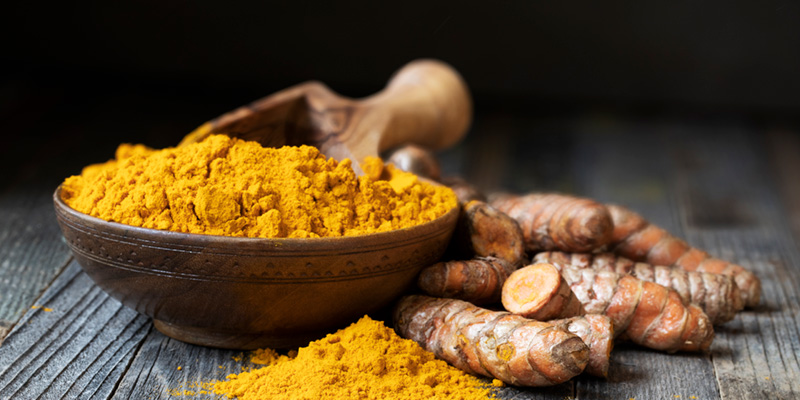
1. Turmeric
Let’s start with the basics. Turmeric is a popular root that most are familiar with, particularly in Indian cooking. But it doesn’t simply add flavor to curry–it also has incredible health benefits.
Turmeric contains curcumin which is a known anti-inflammatory and antioxidant. Curcumin can help boost your immune system and stabilize blood sugar levels.
Turmeric can also help protect and detoxify the liver and aid the digestive system.
Learn more about the health benefits of turmeric here.
2. Valerian Root
This is an amazing herb! Valerian root is used to relax and calm the mind, making it a valuable root to those who struggle with anxiety or sleeplessness.
If you are someone who has difficulty slowing down your thoughts before bedtime, valerian root may be helpful due to its sedative qualities.
Prescription medications for insomnia carry the risk of addiction whereas valerian root is an herb you can use when you wish without becoming too dependent.
You may take valerian root in a capsule or in a tincture.
Learn more about valerian root here.
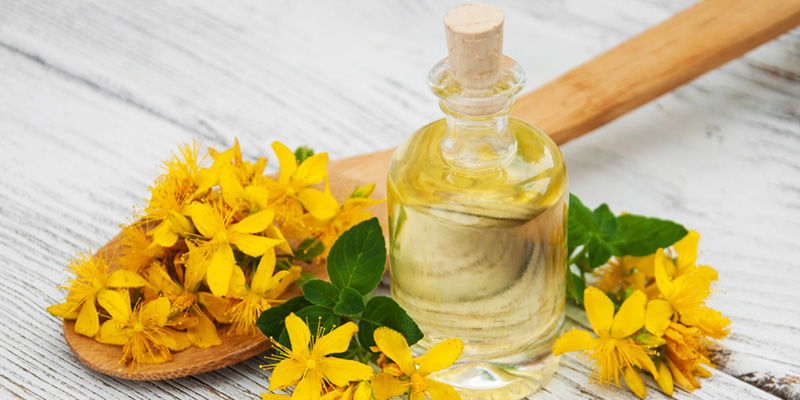
3. St. John’s Wort
St. John’s Wort is commonly used by herbalists to aid those suffering from depression. It is considered one of the most popularly sold herbs in the United States.
This herb helps lift the spirit and positively affects the mood by targeting the brain’s serotonin and dopamine levels. When these levels are too low, feelings of hopelessness and low energy may be experienced.
Please be advised that if you are currently on antidepressants, or are taking hormonal contraceptives, it is important to speak to a healthcare professional before taking St. John’s Wort.
4. Dong Quai
Did you know that Dong Quai is in the same plant family as celery and parsley?
This Chinese herb is multi-faceted and promotes healthy blood circulation. It is believed that Dong Quai can help balance our hormones, which can aid a woman’s menstrual cycle.
Organic Olivia, a popular herbalist and businesswoman in the organic living community, uses this particular herb in both her hormone regulating tincture to support uterine health as well as her hair tincture to stimulate blood flow to the scalp.
Dong Quai is a root that can be taken in a capsule or tincture. Please be advised that this is a blood thinning herb, so those prescribed blood thinners may wish to steer clear. As always, speak to a healthcare professional.
Learn more about Dong Quai here.
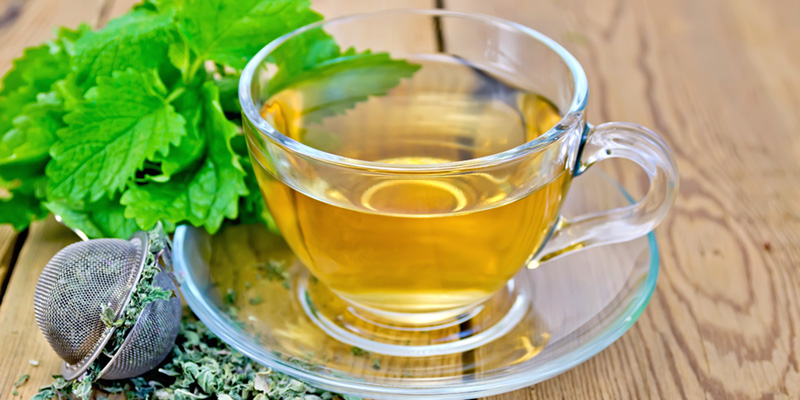
5. Lemon Balm
Lemon balm is taken by those who wish to reduce stress and anxiety. The leaf of this plant is known for its soothing qualities when consumed in a tincture or cup of tea.
The herb may also be used topically to relieve bug bites or cold sores due to its antiviral properties.
Learn more about lemon balm here.
6. Rosemary
When you think of rosemary, the first thing that comes to mind may be the incredible aroma of its leaves. Pair it with lavender or basil and your nose will be in absolute heaven.
But rosemary has value beyond its decadent scent. It is an anti-inflammatory and is also thought to be useful for relieving headaches, improving memory, and increasing energy levels.
This Mediterranean herb is also great for those who need a little more iron or calcium in their diet.
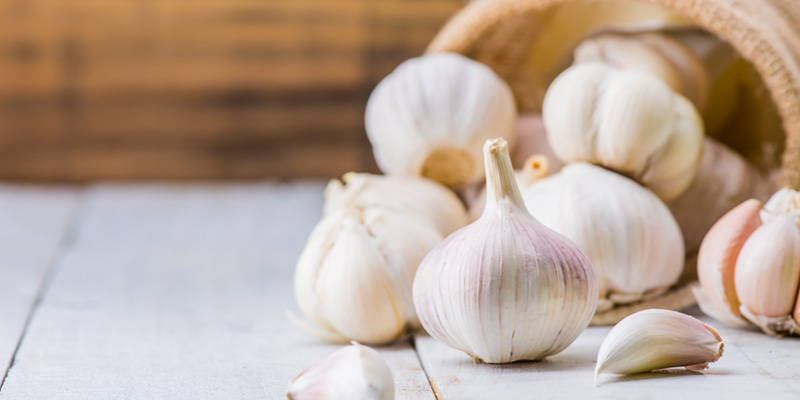
7. Garlic
Have a cold? Some garlic may help boost your immune system and get those annoying symptoms to go away faster.
One 12-week study looked at those who were taking daily garlic supplements versus those simply taking a placebo. The study concluded that those taking the garlic supplement had “significantly fewer colds than the placebo group.” For those who experienced cold symptoms in both test groups, those taking the supplement experienced symptoms for a shorter period of time.
8. Peppermint
Let’s transition from potent garlic to refreshing peppermint, shall we?
Peppermint is gentle on your digestive system and can be mixed with green tea to create a soothing blend when nauseous.
Peppermint may also help relieve migraine pain. Some find it soothing to apply diluted peppermint oil to the temples when experiencing discomfort. Peppermint oil may also be used in a diffuser.
Healthline notes that while there aren’t many studies on the effectiveness of this practice, it is believed peppermint oil may help stimulate blood flow.
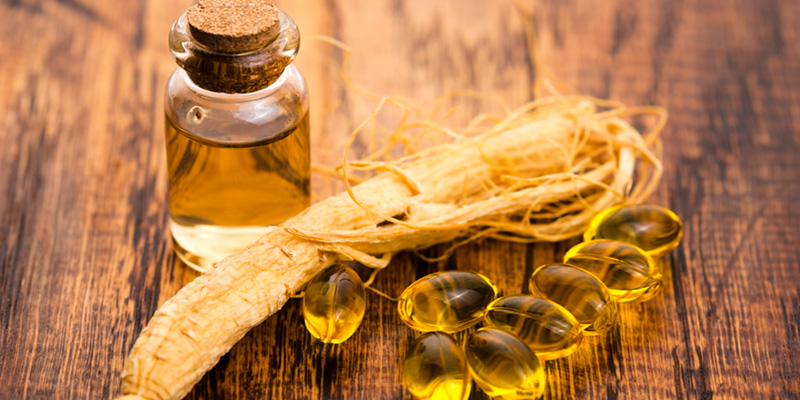
9. Ginseng
There are various types of ginseng root, from Brazilian to American, though Red Ginseng (also known as Korean Ginseng) is considered to be the original and most popular variety.
Ginseng is used to decrease stress and improve mental clarity. It is believed that it can also help reduce inflammation.
Learn more about Ginseng here.
10. Cramp Bark
This plant has a slightly odd name but is worth mentioning!
Cramp bark is used as a muscle relaxant and can particularly aid women who experience cramps during menstruation.
Anne Price, a Certified Holistic Health Coach, writes about the various benefits of cramp bark, mentioning its potential positive effect for those diagnosed with endometriosis.
Cramp bark isn’t just for women though–men experiencing discomfort from muscle spasms may also try this herb.
Educate Yourself
We encourage you to do your own research and learn more about herbal remedies with your own health goals in mind. Be curious and ask questions!
